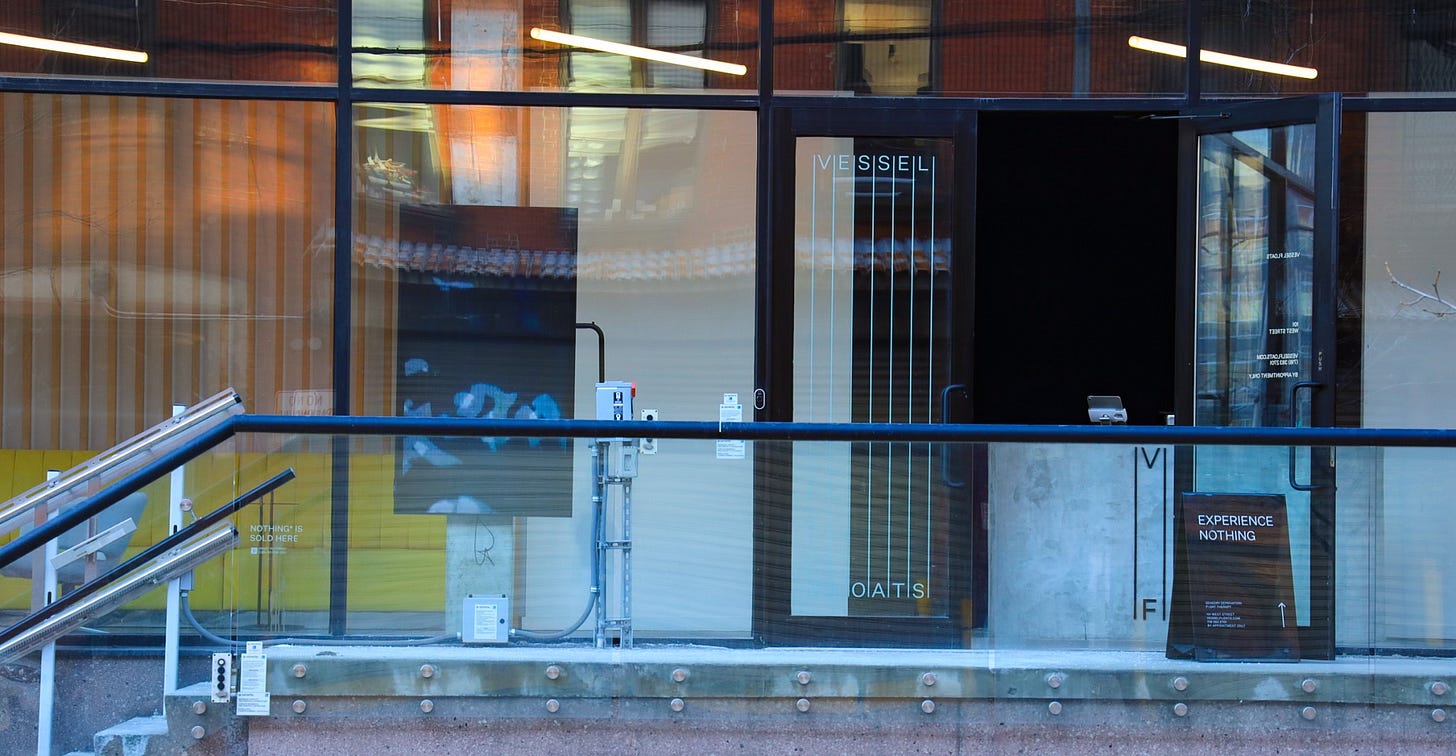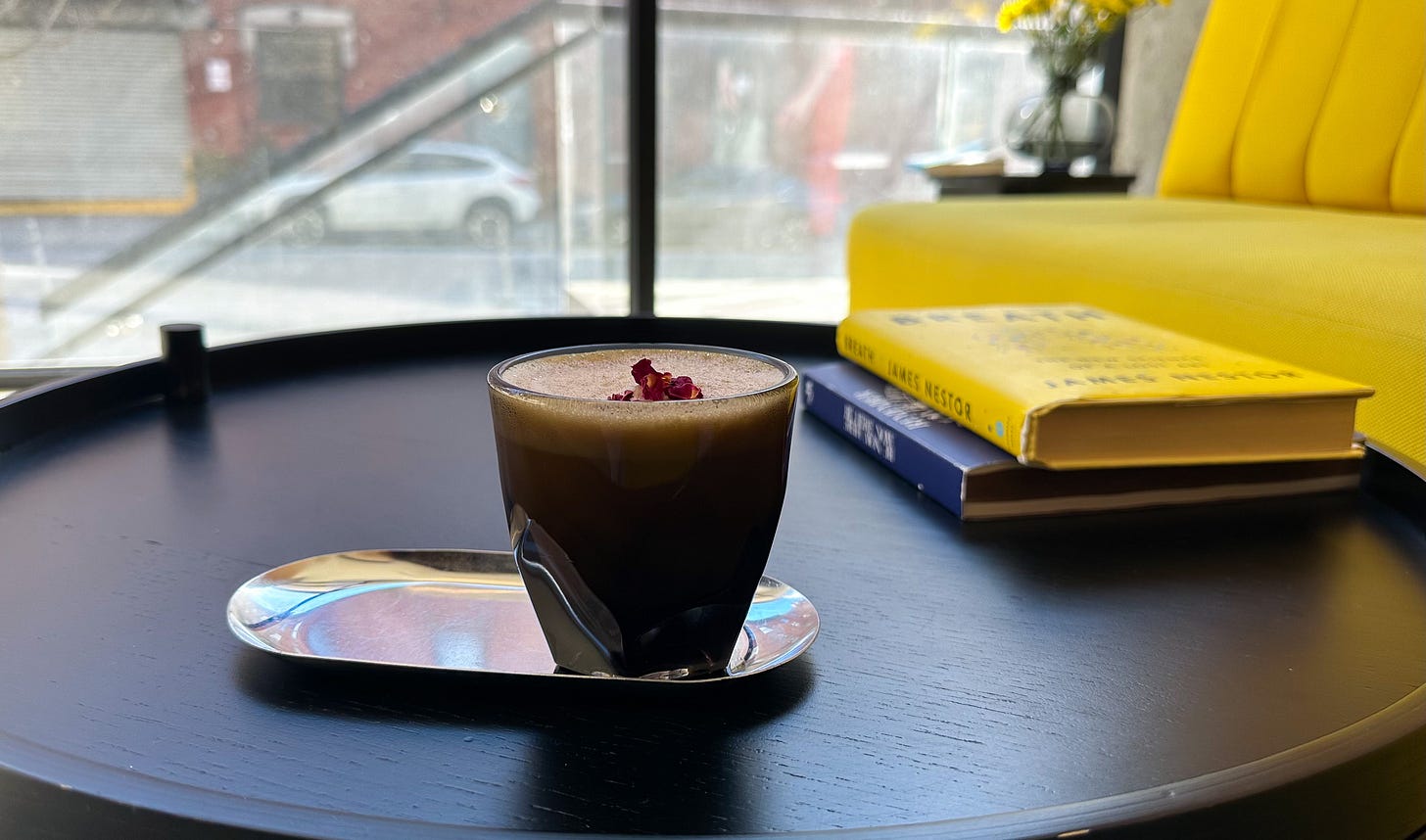My Mind Actually Keeps the Score
Conventional mental health resources are not designed for BIPOC individuals

In 2024, I made the decision to leave traditional therapy behind. Despite the unprecedented challenges under the new administration, I still don’t regret that choice.
A Vicious Cycle
Cycling through different therapists, I quickly realized that many sessions felt like paying someone to be your friend for 45 minutes. More often than not, sessions ended with a pat on the back—affirming my strength, reminding me to practice mindfulness, and promising that we’d unpack my experience next week.
Even when I found decent therapists, they were often out-of-network, leaving me to absorb the extra cost every week. It was exhausting to build rapport with someone, only to have them leave a few months later, starting the cycle anew. This went on for a while until I finally decided to put my foot down.
The Last Straw
The last straw for me was back in August 2024 when my last therapist, a Black queer woman, announced during our session that she was leaving the psychotherapy firm at the end of the month and that she can transfer my case to another therapist. I was sad to find that she was leaving, as I found her insights better than any therapist I had in the past. In the end, I put my feelings aside, wished her well and said I didn’t want to be transferred to a new therapist.
While my experience with her was positive, I didn’t want to continue the exhausting cycle of building trust only to start over again. This disappointment became even more personal when I needed a support letter for my insurance to cover my final gender-affirming surgery. Although she initially agreed, her practice ultimately denied my request, forcing me to seek an alternative.
Finding a New Path
After securing a pro-bono support letter via a quick Zoom call with a compassionate licensed social worker elsewhere, I realized that I needed to explore new avenues for healing. Traditional therapy had often left me feeling unfulfilled; in a world that often invalidates my very existence, I craved a method that resonated with my unique experiences.
Determined to find relief, I began experimenting with alternatives from yoga and support groups to other holistic practices. As I vented about my experience on social media, several community members—many of whom were White—advised me not to give up and to keep searching for the “right therapist.” While I appreciated their concern, their suggestions felt disconnected from my lived experience, highlighting the unique challenges I face in a system that doesn’t fully understand the intersection of my Hispanic heritage and immigrant background. These experiences, interwoven with the unique challenges of my transgender identity, made it clear that I needed a healing practice that honored every aspect of who I am.
Recent data makes it painfully clear why finding the “right therapist” isn’t as simple as just pushing through. In 2020, only 37.1% of Black adults and 35% of Hispanic adults with a mental illness received treatment, compared to 52% of White adults.1 Asian Americans are even less likely to seek therapy, often shut out by cultural stigma and a lack of therapists who actually understand their experiences.2 Cost is another major barrier as therapy isn’t cheap and many families end up in debt just trying to get the care they need.3 Then there’s the deep-rooted distrust in medical systems, a completely valid response to generations of racism and neglect, and the ongoing struggle to find providers who actually get it.4 So when people tell me to “just keep looking,” I can’t help but feel like they are missing the bigger picture. The issue isn’t my determination, it’s the system itself.
One restless night, after a day filled with unresolved emotions and relentless self-research, I stumbled upon sensory deprivation float therapy on Wikipedia. The idea of floating, escaping the busyness of New York City and quieting my overactive mind, resonated deeply as a form of radical self-care.
That night, I somehow found myself reading about sensory deprivation float therapy. I discovered that sensory deprivation float therapy offered several compelling benefits, including:
Lowering stress and anxiety levels
Promoting deep relaxation that leads to better sleep
Relieving muscle tension, headaches, and chronic pain
Raising mood and boosting optimism
Enhancing creativity and focus
Speeding up recovery after workouts
I was intrigued, excited even, to know that this was exactly what I was looking for. Living in New York City, I was often bombarded with honking cars, street construction, crowded trains which all marked rapid gentrification of Brooklyn and Queens. It didn’t take me long to find a place that offers sensory deprivation float therapy—a place called Vessel Floats. After years of disappointment with the mental health system, I was willing to try anything at this point. So I went on their website and booked an 8:00am appointment for the upcoming weekend.
Fast forwarding to Sunday, I hopped on the G train to Greenpoint Avenue and walked a couple of blocks where I was greeted with a beautiful waterfront view of the Hudson River and a large building that housed several businesses.
Once I walked inside, I was quickly greeted by a kind face that checked me in, offered me a menu and invited me to sit among the soft sunflower sofas, accompanied by tables that had books that waxed lyrical about breathing and sound. The menu presented a variety of options—from tonics to mix into my pre-float tea, to choices for background music during the float, and even drinks to savor afterwards. My brain was craving relaxation so I opted to have Happiness in my tea and Calming the Reactive Mind guided meditation.
As I put the warm shot glass to my lips, I set my intention to find peace and healing and went inside my assigned float tank room. I got undressed, showered my body with a black charcoal body wash and settled inside the float tank filled with warm water mixed with Epsom salt.
The moment I lay back in the water, the effect was immediate. I switched off the lights, and I was enveloped in complete darkness—no light, no sound, not even the gentle whisper of my own floating. After a few moments, I closed my eyes as the guided meditation immersed me in a spiritual hug.
The float lasted an hour, with my mind running marathons in my head as it processed its new surroundings and thoughts that plagued my mind for the past few weeks. I saw interesting images behind my closed eyelids, settling into the stark reality of how overstimulated I have been and never knowing what that feeling was. It was the feeling of exhaustion from all the LGBTQ+ activism I did and the relentless cacophony of the concrete jungle called New York City.
As the lights turned back to signal the end of my journey, I stood up and exited out of the tank to shower. Once I got dressed and went back out to the waiting area, I was once again exposed to sunlight, casual conversation chatter and calming music.
But this time, I noticed an unusual level of calmness with what I usually found overstimulating. This feeling of no longer feeling trapped within my mind felt like a breath of fresh air in the morning. Not wanting to let this feeling pass, I took out my journal and began to write down feelings and thoughts that came up during my float. I wrote about the anti-trans bills, lives that had been lost to senseless transphobic violence, and my personal trauma.
It wasn’t long before that same kind face greeted me again, asking how my float went. I grinned at them, giving them positive feedback that this was a unique experience that I never had before and that I had really enjoyed the inner peace it brought me. She smiled, beaming at my praise and said that she was glad that it went well before bringing me my drink. She settled the drink on the table in front of me, telling me that I was welcome to stay as long as I want and that she was ready whenever I was to check out.
As I took a sip of my spiced chai latte, it felt like a warm hug in my stomach that prolonged my current state of peace and relaxation. Being a transgender activist, among my many other intersections, I often felt relaxation was just always out of reach. I reflected on the countless nights of my mind chattering away as I longed for sleep to take me. Who would have known that all it took for my brain to finally achieve a state of equilibrium was floating in a tank for an hour?
While sensory deprivation float therapy may seem unconventional, it marked the beginning of a new chapter for me. I now commit to reclaiming my peace and nurturing my inner self every Sunday morning. Dedicating this time to float and reflect is healing my wounds and laying a foundation for community resilience. When we start healing with ourselves, we are better equipped to heal our communities.
My healing journey continues—one float at a time.
RTOR. BIPOC Mental Health Equity Fact Sheet. Resources to Recover. Accessed February 19th, 2025. https://www.rtor.org/bipoc-mental-health-equity-fact-sheet/
PMC. "Disparities in Mental Health Treatment Among Asian American Populations." National Library of Medicine. Accessed February 19th, 2025. https://pmc.ncbi.nlm.nih.gov/articles/PMC11329229/
Parents.com. "The Doctor Is Out: How Financial Barriers Prevent Many Families from Accessing Mental Health Care." Accessed February 20th, 2025. https://www.parents.com/the-doctor-is-out-how-financial-barriers-prevent-many-families-from-accessing-mental-health-care-8762774
CMH. "Mental Illness Doesn’t Discriminate, So Why Do BIPOC Communities Have Difficulty Accessing Care?" Jefferson Center for Mental Health. Accessed February 20th, 2025. https://www.jcmh.org/mental-illness-doesnt-discriminate-so-why-do-bipoc-communities-have-difficulty-accessing-care/




